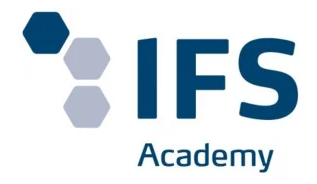Auditing against IFS Food Requirement 1.2.2.2
Specific Situations and Version Applicability
The IFS Food Standard has undergone several versions. Each version has introduced improvements and updated requirements. In this article we provide you more clarity on which version to apply in specific situations:
- IFS Food v8 Audits: If the audit begins between October 1, 2023, and January 1, 2024, companies can choose to be audited according to either IFS Food Version 8 or IFS Food Version 7. You have the option to decide.
- Mandatory IFS Food v8: If the audit starts on or after January 1, 2024, companies must undergo an audit based on IFS Food Version 8.
- Unannounced IFS Audits: If the audit window for an unannounced IFS audit starts on or after October 1, 2023, the audit must be conducted in accordance with IFS Food Version 8.
- Multi-Location Companies: All sites within a multi-location company must be audited using the same version as the head office.
Exceptional situations
Here are some exceptional situations where IFS Food Version 7 can still be applicable:
- If a multi-location company has central management and the audit for the central managing site began before October 1, 2023, and it’s not feasible to conduct the central management audit following Version 8, then all sites, including those with unannounced audits starting on or after October 1, should be audited according to Version 7 as well.
- Follow-up audit when the “main” audit was performed according to v7.
- Extension audit when the “main” audit was performed according to v7.
The allowance for using Version 7 in the exceptional situations mentioned above will end on December 31, 2024.
The Challenges of Implementing IFS Requirements and the Benefits of Following IFS Food Version 8
Implementing and conforming to the requirements of the International Featured Standards (IFS) can be a challenging journey. There are several key obstacles to consider along the way.
Firstly, the complexity of the IFS standards covers a wide range of aspects related to food safety and quality management. Navigating and ensuring compliance with these standards can be complex due to their comprehensive nature.
Secondly, successfully implementing IFS requires careful resource allocation. This means allocating enough time, personnel, and finances to meet the requirements. Balancing these resources while managing other operational priorities can be a challenge.
Food Safety Culture
Moreover, embracing IFS often necessitates a cultural shift within your organization. This involves changing mindsets, attitudes, and behaviors to prioritize food safety and adopt proactive approaches. However, it’s important to be aware that resistance or reluctance to this cultural shift may arise.
Supply Chain
In addition, achieving IFS conformity throughout the entire supply chain can be demanding. It requires coordinating practices and aligning processes with multiple suppliers and external stakeholders, which requires effort and collaboration.
Another challenge lies in meeting IFS compliance through rigorous documentation and record-keeping practices. This means maintaining accurate and up-to-date documentation, including procedures, policies, and records. It can be time-consuming and meticulous.
Continuous Improvement
Lastly, IFS emphasizes a culture of continuous improvement. This means conducting regular process reviews, internal audits, and implementing corrective actions. Sustaining this mindset amidst competing priorities can be demanding.
Official IFS Academy training IFS Food version 8

To overcome these challenges, it is essential to take proactive measures. Building a foundation of committed leadership, fostering effective communication, and implementing well-designed training programs are crucial steps towards success. Collaboration with stakeholders and adopting a systematic approach to implementation will further enhance the chances of achieving and maintaining conformity with IFS requirements. It’s important to remember that perseverance and a proactive attitude are key ingredients for success in this endeavor. By embracing these principles, you can navigate the challenges more effectively and set yourself on the path to achieving excellence in food safety and quality management.
By following IFS Food Version 8, you can benefit from the latest insights and guidance provided by the standard. This will help address the aforementioned challenges more effectively, ensuring a smoother implementation process and enhancing food safety and quality management within your organization.
IFS requirement 4.6.1 Adaptive Environmental Monitoring Scheme
The IFS Food v8 introduces a change with requirement 4.6.1. We’ve designed a one-pager to guide you in creating your own Adaptive Environmental Monitoring Scheme.
Click here to download the one-pager.
